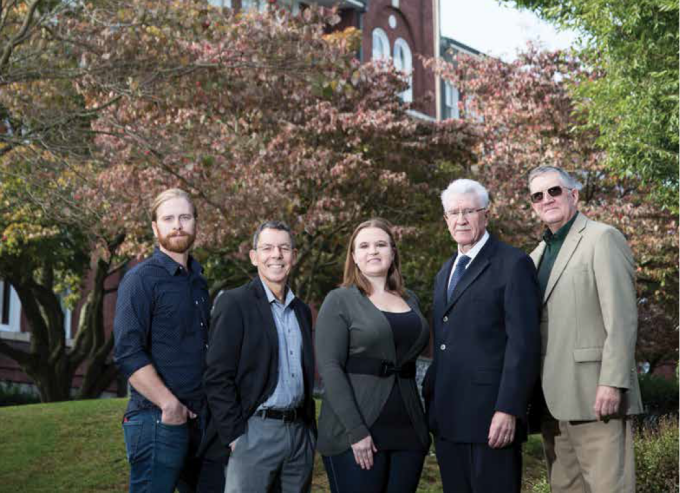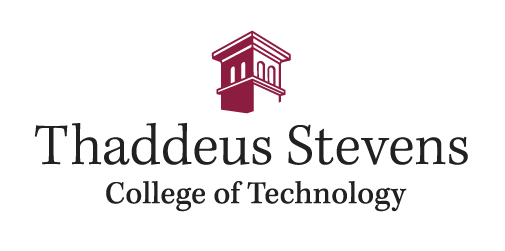Growing Tech Through Collaboration

 Chip Cargas,
Chip Cargas,
“There are way more technical jobs in Lancaster than anyone realizes,” he says.
The Lancaster County Workforce Investment Board estimates the number of software developers in the area has grown by nearly 50 percent over the past decade, and the race is on among mid-sized cities to become a technology hub that attracts high-wage jobs and a talented workforce.
Some industry leaders think they found a shortcut to get there. They’re part of a collaboration between leading county tech firms and Thaddeus Stevens College of Technology to develop a nimble associate degree program in software engineering that will turn out the skilled workforce the technology sector needs—and quickly.
Tech Talent
Most tech companies situated in Lancaster have a problem finding and retaining good talent, says Joel Walker, president of Industrial Resolution, an agency specializing in consulting and implementing mobile applications,
“We’ve never had to go to unorthodox measures to find talent,” Walker says, having had the luxury of a waiting list of potential employees. But that may be changing.
Walker says, having had the luxury of a waiting list of potential employees. But that may be changing.
“For the first time, I’m finding my waiting list a little thin.”
Walker now owns and operates the Central Pennsylvania Open Source Conference and founded Pubforge, a co-working space for local technologists, both key grassroots efforts to attract more talent to the region.
The challenges facing the nascent tech industry in Lancaster mirror a trend in the Lancaster County business community and beyond. In general, the supply of skilled workers—particularly in the trades and other so-called STEM (Science, Engineering,
According to the Lancaster County Workforce Investment Board, five of the top 10 growth occupations involve engineering or technology. (Four of the other five are in healthcare.) The predicted growth also puts upward pressure on wages. The Labor Department says median earnings of software developers in Lancaster County was more than $77,000 in 2014, well above the median household income in the county.
“We’re all competing for people with technical skills that are practical in the real world,” admits Cargas, whose 90-employee company sells accounting and business software, including locally-developed software for heating oil and propane delivery companies.
“Nearly everybody in our company has some kind of technical expertise,” he says, but it is struggling to meet its diversity goals. “We’re looking for ways to find connections with people from diverse backgrounds who have the skills to do the job.”
Industry Idea
Cargas is a member of Thaddeus Stevens’s community advisory council, a 40-member board of high-level local executives who monitor the college’s progress and brainstorm on topics relevant to its growth. Often, the brainstorming sessions turn to new programs that could meet current workforce needs.
“I naturally lobbied for software engineering,”
Indeed,  major to Walker at the Lancaster Chamber’s annual business meeting, which was held on the Stevens campus in January. Walker went straight for college president William Griscom to say: “I’m interested.”
major to Walker at the Lancaster Chamber’s annual business meeting, which was held on the Stevens campus in January. Walker went straight for college president William Griscom to say: “I’m interested.”
In less than a year, the college began accepting applicants for the major with classes scheduled to begin in the fall of 2017.
“We pride ourselves on our ability to take well-reasoned risks,” Griscom says. “When you’re small, if you’re not at least agile enough to respond to opportunities and the environment, you’re dead.”
Need for Speed
Both Cargas and Walker often hire employees with bachelor’s degrees, so why did they look to a two-year technical college?
In a word: Speed.
“There’s no language, no program, no fundamental thing that we use and practice on a day-to-day basis right now that we’ll still be using in four years,” Walker says. “The field evolves so rapidly, you might be better off getting a rapid education and getting started in the workforce.”
Both industry executives say Stevens is nimble enough to adapt the program to what’s going on in the real world. They also see potential in the type of students Stevens serves, particularly those from traditionally underrepresented populations.
“A school that’s recruiting from the local region, offering a two-year program, offering it for free [to qualifying students] and empowering them with that knowledge, using curriculum written by me and my colleagues,” Walker says. “That is all kinds of wins.”
Curriculum
Thaddeus Stevens evaluated the software engineering major, Griscom says, with the same criteria it uses for all recommended programs. Most importantly, the college asks: Is it technical in nature? Are there good jobs available locally, do they pay family-sustaining wages, and do they offer a career path for graduates to advance? Will Stevens students from economically disadvantaged backgrounds—a demographic the college is mission-bound to serve—have the requisite academic skills to enter the program and be successful? And, ultimately, does the college have the necessary resources and infrastructure?
“This program looked really good on
The software engineering curriculum will prepare students to design, develop and build customized software programs. It emphasizes practical, hands-on learning, and students will be required to create software projects each semester. The industry advisory committee will monitor the program to ensure it stays current and teaches on the most modern platforms.
Impact
Griscom’s goals for the program are more near-term than his industry partners. He’s aiming for full enrollment and hoping those students graduate in two years with good jobs waiting for them.
“That they have a career path that they can move up in their organizations and become productive citizens and give back something to the communities in which they live—that’s what we hope for all of our students,” he says.
Industry leaders are anxious to see graduates of the program “hit the ground running,” as
Walker has the same expectations for the partnership, always with an eye to building Lancaster into the technology hub he envisions.
“Every tech hub has great technical institutions that are feeding the workforce with creative young talent.”
Click here to read the full issue in Lancaster Chamber's Thriving! Magazine.
Adam Aurand is the Director of Marketing at Thaddeus Stevens College of Technology.
